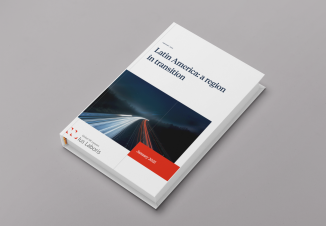
On 11 April 2019, the Chamber of Deputies approved a bill to amend the Federal Labor Law (the ‘Law’) and on 29 April 2019, the Senate approved the bill in a full vote. On 1 May 2019, coinciding with International Labour Day, the executive decree enacting these changes to the Law was published in the Federal Official Gazette.
Background
The amendment to the Law derives from three sources:
What do the amendments involve?
The amendments will transform Mexico’s employment law justice system as set out below.
The existing Conciliation and Arbitration Labor Boards that currently deal with employment law disputes are to disappear and be replaced by labour courts assigned either to the federal or to state (local) judicial branch of government.
All matters that reach these courts will be heard in the presence of a judge and the rulings to be issued resolving disputes will be judgments of law, rather than equity.
The labour law rules of procedure are substantially amended. New sets of rules are introduced, as follows:
During the prosecution of all stages of a new proceeding, the labour courts will comply with principle of prioritising oral proceedings. In particular, hearings will respect the principles of:
As a result, the process of resolving labour disputes is expected to be more efficient and expedited.
A notification and communications system between the authorities and the parties is proposed, using information technology to expedite labour law procedure.
Creation of a Federal Conciliation and Registration Center (the ‘Conciliation Center’)
At federal level, the Conciliation Center will be in charge of:
At a state level, there will be Conciliation Centers that will only be in charge of conciliation proceedings.
Amendments to collective bargaining rights
The bill acknowledges that union members will be entitled to exercise a number of rights of free affiliation and participation in labour organisations. The most important are the following:
The execution, filing and registration of a union contract will be conditional upon the securing of a so-called ‘union certification record’, in which the union must provide evidence that it represents at least 30% of the majority interest of the employees and that these employees have expressed to the union their intention of taking up membership.
All existing union contracts should be reviewed according to the procedure set out for this purpose within a maximum term of four years following the effective entry into force date of the Law.
Any notice of intention to strike for the purpose of entering into a Collective Bargaining Agreement or salary or benefit adjustment revision must be filed accompanied by a union certification record; otherwise, the strike notice will be null and void. The purpose of this procedure is to terminate any notice of strike that is not supported by or representative of the employees of the workplace
No change or amendment is currently made to the current employment outsourcing regime, therefore the provisions contained in the Law relating to outsourcing remain in full force and effect; however, in the event of a future change or amendment, this will be reviewed during subsequent legislative periods.
Transitional provisions

